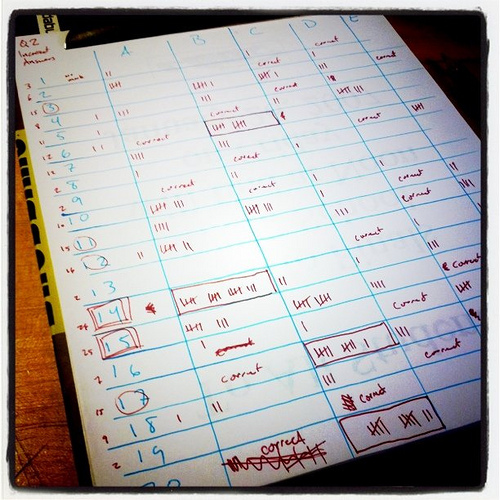RTA ripped off by IT contractors: report

The NSW auditor-general has investigated claims of wastage and mismanagement at the former Roads and Traffic Authority (RTA), finding weaknesses in the RTA's contract management framework, which it paid for IT services it did not use and failed to claim rebates when IT contractors did not meet minimum performance levels.

(Data image by Benjamin Chun, CC BY-SA 2.0)
The auditor-general's report investigating complaints made about the RTA — now known as Roads and Maritime Services (RMS) — forms part of volume one of the Audit Office of New South Wales' financial audit (PDF). The office received 15 complaints about two long-term IT contracts that the RTA held, totalling over $28 million in value per year.
Of the 15 complaints, the auditor-general found that four needed further examination by RMS and Transport NSW.
In particular, for one of the contracts, the details of which were not disclosed, the report found that the RTA did not take advantage of provisions in the agreement between the RTA and the IT contractor to claim rebates when the contractor failed to meet the RTA's specified performance levels. During the six years of the contract's validity, the RTA only took advantage of this provision once.
The auditor-general noted that the RTA had conducted its own audit into the contract, finding that there was no process for managing performance rebates or how they were reported, effectively allowing the contractor to judge its own performance.
The RTA even overpaid one of the contractors by $112,500, because the contractor continued to send invoices for monthly temporary service payments after it was ineligible to receive them.
The report also found that although the RTA had some good features in its contract management framework, there were some significant weaknesses, including the absence of contract management plans for either IT contract.
Certain aspects of the contracts, such as whether certain services should be considered part of the core contract or billed as an additional service, were not documented and relied on the knowledge of involved staff. Furthermore, the report stated that management and accountability for additional services were scattered across different business units and managed by different project managers. As a result, the auditor-general wrote that no one person appeared to have day-to-day accountability for the contracts.
The auditor-general wrote that the findings in the report "put in doubt whether RTA was effectively managing its IT services contracts more generally, and therefore whether it was getting value for money".
As the next steps for RMS and Transport NSW, the auditor-general recommended several actions that would need to be taken, considering that responsibility for the services under the contracts transitions to Transport NSW at expiry.
Such recommendations included both departments reviewing their contract management frameworks and extending them to cover all contracts they are responsible for, as well as conducting a complete risk assessment of all existing service contracts and putting in place formal contract management plans for those that they identify as high risk.
Furthermore, the auditor-general recommended that Transport NSW first undertake a review of the IT services contracts that RMS and RailCorp have in place before the establishment of whole-of-transport arrangements. This review would need to respond to issues raised in RMS's initial reports to the auditor-general as well as the auditor-general's own findings.